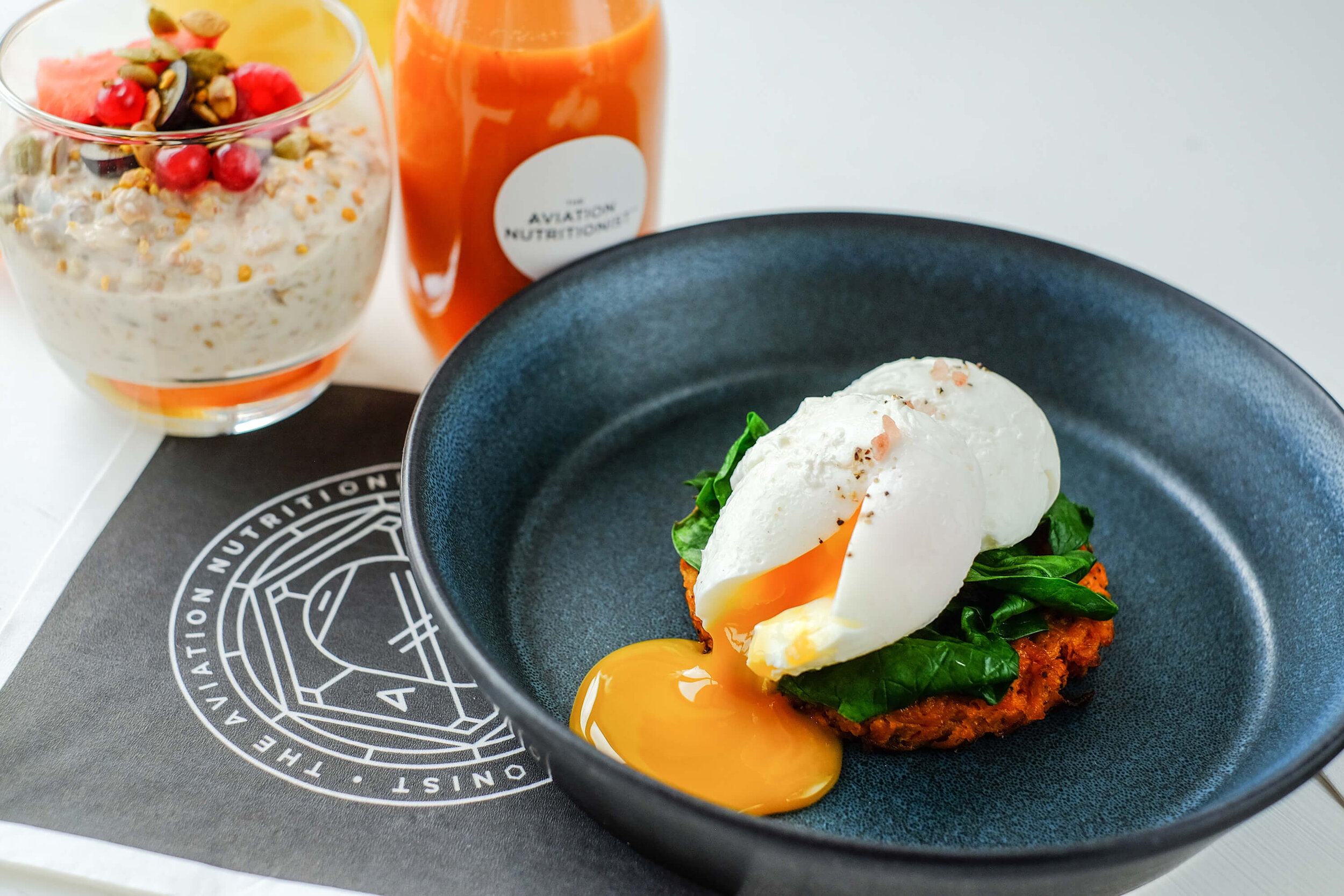The Aviation Nutritionist creates menu options and offers nutritional advice on maintaining peak performance at altitude.
By creating a menu that is inspired by cuisines from around the world, bringing tasty, satisfying food to the consumer rich in antioxidants, the issues associated with flying at altitude are addressed by a menu which focuses on the following key factors:
Rich in antioxidants
Help maintain stable
blood sugar levels
Sustainably and responsibly sourced, considering provenance
Incorporate flavours and ingredients from around the world
No refined sugar
Dairy free
Wheat & Gluten free
Limited in stimulants
(such as caffeine, alcohol)
The source and sustainability of the ingredients we use is key; not only should we be aware of the hormones and chemicals that go into growing and rearing our produce and the effects this can have on our health and wellbeing, considerations regarding the profound effects this can cause to our environment is also essential.
Why Blood Sugar Balance is important
The Recipe for Success
Antioxidants
Berries contain different kinds of antioxidant, including anthocyanin, which is responsible for the dark purple and red colouring. Numerous studies have looked at the effects of these on brain function and memory. They are also a good source of vitamin K and C - helping with immunity, fibre and manganese.
To help with mental clarity:
Ensure hydrated
Eat more rainbow foods & diversity
Use antibacterial herbs e.g rosemary & sage
Exercise
Mood - Gluten Free Menu
Gluten is the main protein found in wheat (including spelt, durum, bulgur and semolina) as well as barley, rye and some oats. It is possible that some people have a “gluten sensitivity” or “non-coeliac gluten sensitivity’ rather than coeliac disease or an allergy to wheat.
Research shows that non-coeliac gluten sensitivity may have an effect on depressive symptoms.
Refined Sugar
Like cocaine, morphine and alcohol, sugar is thought to activate the reward and pleasure centres within the brain known as the dopaminergic pathway. The ‘high” we feel from eating sugar things may help relieve anxiety temporarily, but too much too often can lead to an addictive desire for another sugar high.
The “Happiness Hormone”
Serotonin is a neurotransmitter or chemical messenger that plays an important role in both the brain and the digestive system. 90% of serotonin is found in our gut.
The serotonin in our gut helps with a number of digestive functions, in particular its natural movements.
Foods which contain serotonin include walnuts, bananas, kiwis and plums.
You need an amino acid called Tryptophan to make serotonin. This is mainly found in protein-rich food including turkey, butternut squash, sunflower seeds, pumpkin seeds, avocado and turkey.

















